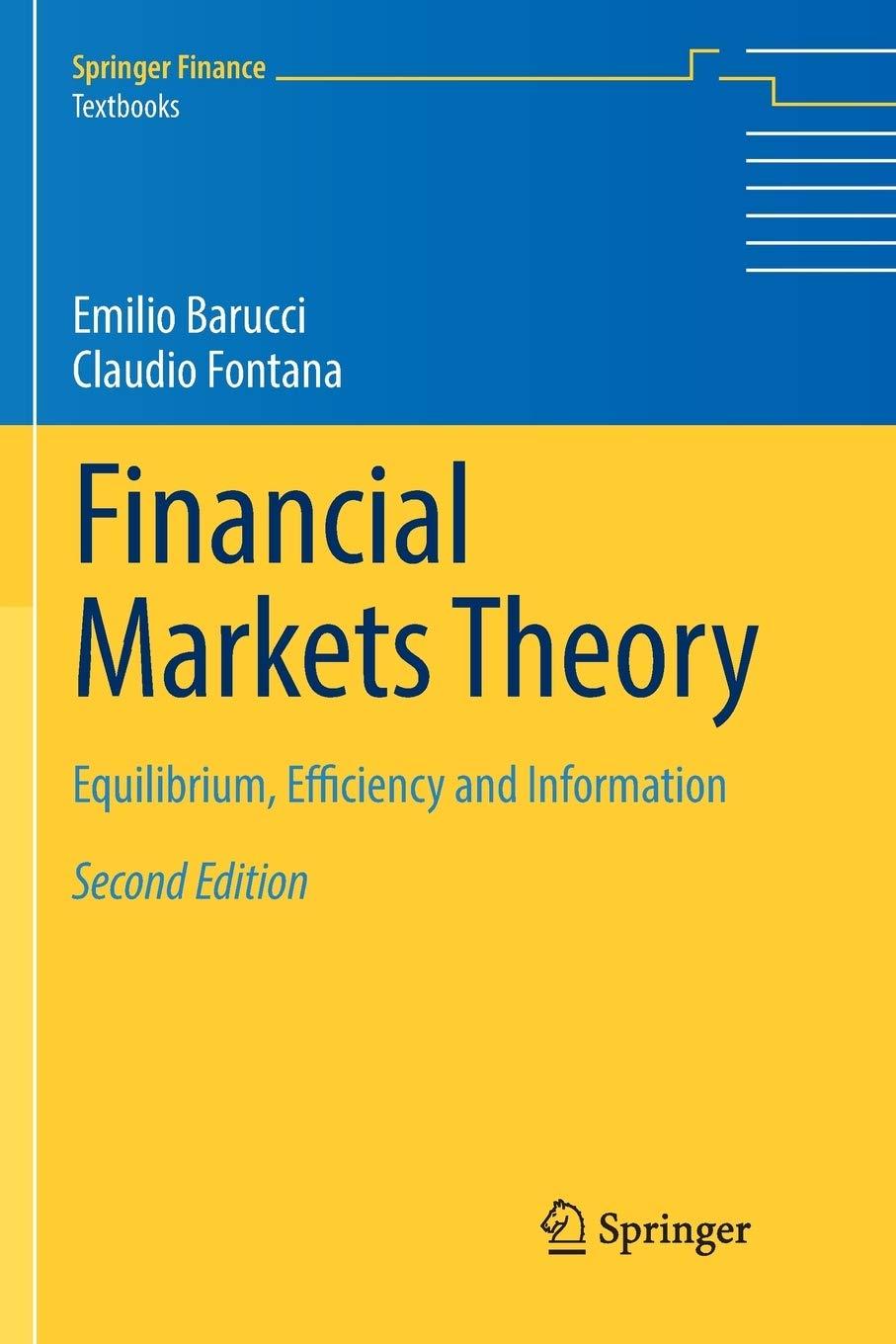Under the assumptions of Sect. 6.4, suppose that the economy is infinitely-lived (i.e., (T=infty) ) and let
Question:
Under the assumptions of Sect. 6.4, suppose that the economy is infinitely-lived (i.e., \(T=\infty\) ) and let \(B(t, t+\tau)\) denote the price at date \(t\) of a zerocoupon risk free bond maturing at date \(t+\tau\), for \(t \in \mathbb{N}\) and \(\tau \in \mathbb{N}\). Suppose in addition that there exists a representative agent characterized by the utility function \(\sum_{t=0}^{\infty} \delta^{t} \log \left(c_{t}\right)\) and that the aggregate endowment process \(\left(e_{t}\right)_{t \in \mathbb{N}}\) evolves according to
\[e_{t+1}=ho e_{t} u_{t+1}, \quad \text { for all } t \in \mathbb{N}\]
where \(\left(u_{t}\right)_{t \in \mathbb{N}}\) is a sequence of independent and identically distributed positive random variables and \(ho>0\). Show that, for each \(t \in \mathbb{N}\), it holds that
\[B(t, t+1)=\frac{\delta}{ho} \mathbb{E}\left[\frac{1}{u_{1}}\right] \quad \text { and } \quad B(t, t+2)=\frac{\delta^{2}}{ho^{2}}\left(\mathbb{E}\left[\frac{1}{u_{1}}\right]\right)^{2} .\]
Step by Step Answer:

Financial Markets Theory Equilibrium Efficiency And Information
ISBN: 9781447174042
2nd Edition
Authors: Emilio Barucci, Claudio Fontana





